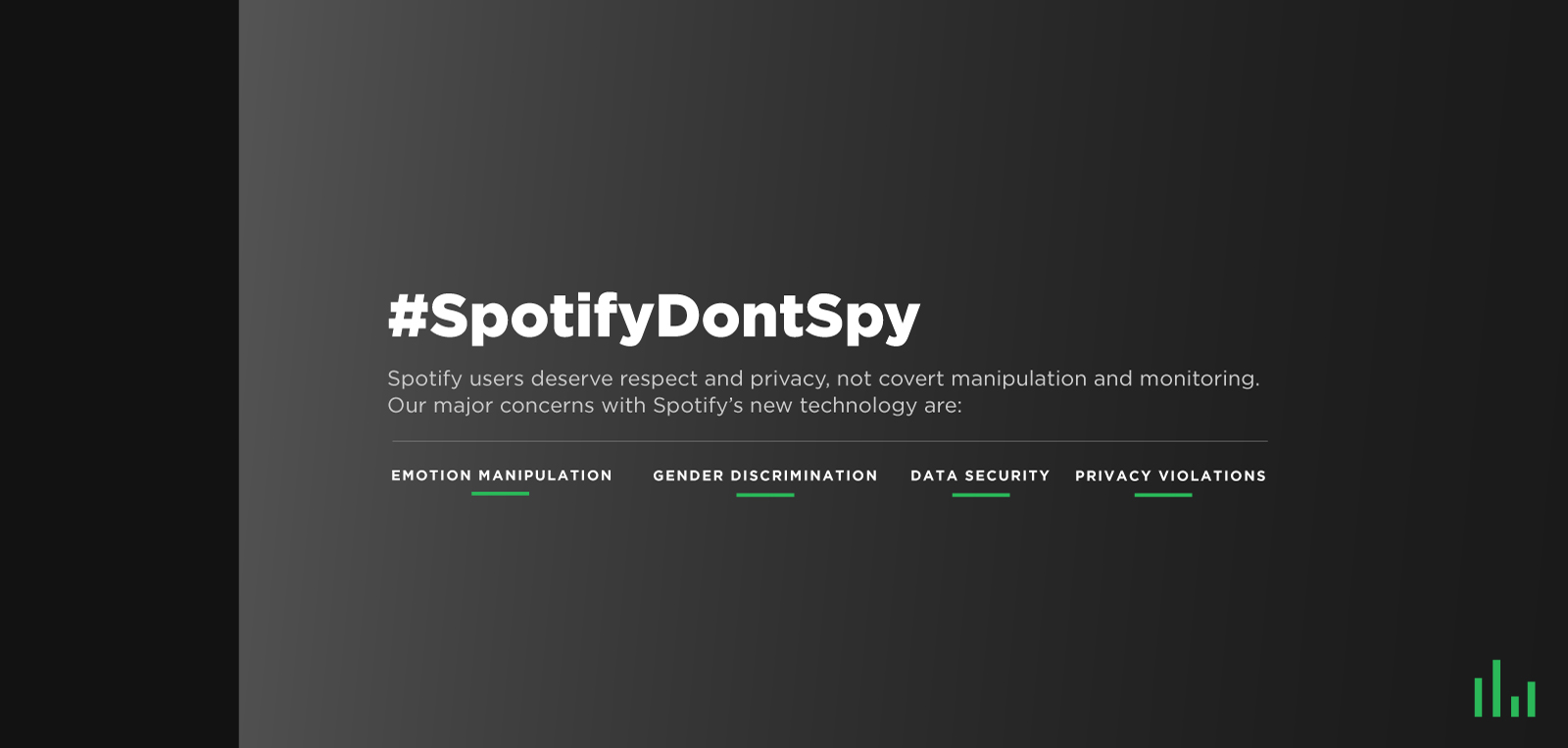Today, Access Now sent a letter to Spotify’s biggest investors, asking them to hold the company accountable for developing a dangerous voice-recognition patent technology. Spotify claims the tech is capable of detecting the “emotional state, gender, age, or accent” of listeners—violating their right to privacy, nondiscrimination, and freedom of expression.
Access Now’s major concerns with the technology are:
- Emotion manipulation: Monitoring emotional state, and making recommendations based on it, puts the entity that deploys the tech in a dangerous position of power in relation to a user.
- Discrimination: It is impossible to infer gender without discriminating against trans and non-binary people, and others who do not fit gender stereotypes. It is also impossible to infer someone’s music taste based on accent, without assuming there’s a “normal” way of speaking or falling into racist stereotypes.
- Privacy violations: The device would be recording everything — it would be monitoring, processing voice data, and likely ingesting private information. It would also collect “environmental metadata,” which could inform Spotify that other people (who might not know Spotify is listening) are in the room and potentially be used to make discriminatory inferences about them.
- Data security: Harvesting deeply personal data could make any entity that deploys the tech a target for snooping government authorities and malicious hackers
“Spotify’s technology is ripe for discrimination and abuse,” said Jennifer Brody, U.S. Advocacy Manager at Access Now. “Classifying people based on their perceived accent or emotional state or gender is a blatant human rights violation. If investors do not take a stand to ensure that Spotify never implements or sells this technology, they will be complicit in prioritizing profit over people.”
Access Now first raised these concerns directly with Spotify in April, and the company promised the technology would never be employed in any of their products. Despite this claim, Spotify failed to commit to never use, license, sell, or monetize the technology. Access Now calls on Spotify’s major investors to demand the company make these commitments.
